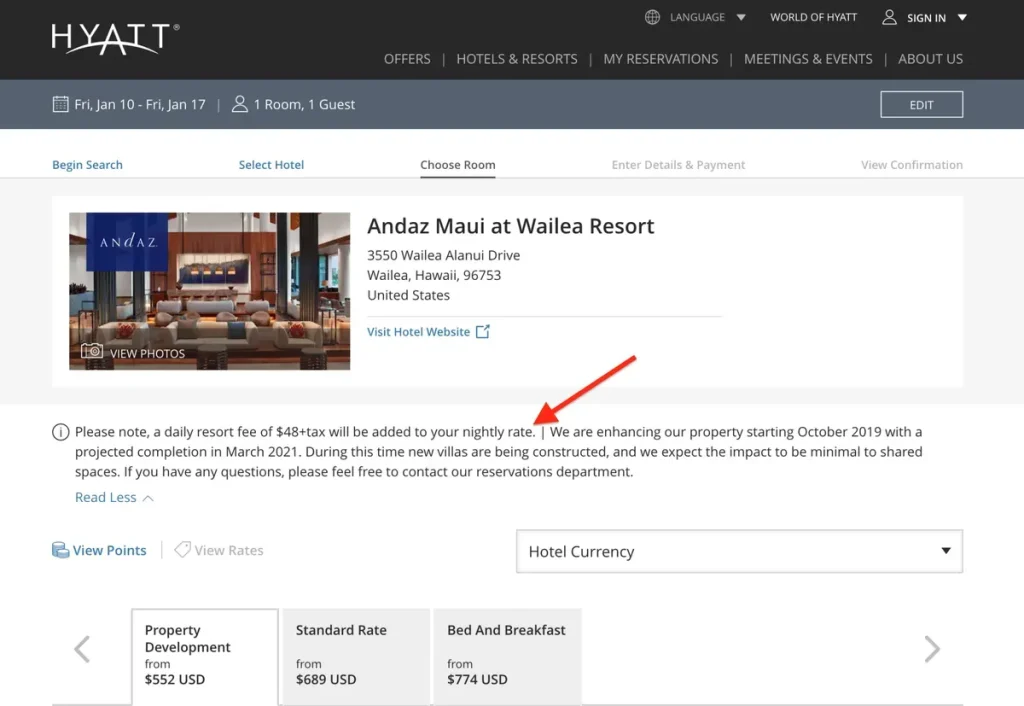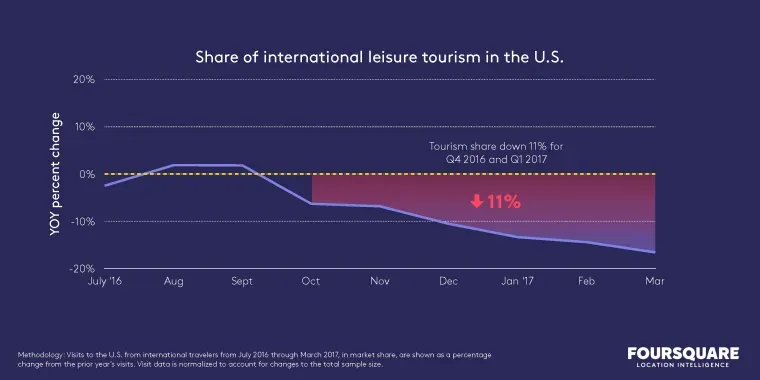Resort fees disclosure has emerged as a significant topic in the ongoing conversation about transparency in hotel pricing. Starting May 2025, a new U.S. rule mandates that hotels and short-term lodging providers must clearly disclose these often-unexpected “junk fees,” which include charges that many travelers associate with basic amenities. This initiative, led by the Federal Trade Commission, aims to shed light on various “destination fees” and other hotel fees that can inflate the cost of a stay without prior notice. By requiring hotel operators to list these fees upfront, the rule seeks to safeguard consumer rights and enhance the booking experience for travelers. However, as some express skepticism about enforcement capabilities, only time will tell if this new regulation will truly benefit consumers and change the way hotels approach pricing.
The recent mandate surrounding resort fees disclosure aims to tackle the pervasive issue of hidden charges in the travel industry. These supplementary charges, often referred to as “destination fees” or “hospitality service fees,” have frustrated consumers for years. With the Federal Trade Commission’s latest rule, hotel operators are now compelled to provide clarity regarding any extra costs associated with their services. This shift towards increased transparency in hotel pricing is not only welcomed by consumers but also raises the stakes for hotels that have relied on such fees as a revenue stream. As the travel industry adapts to these changes, the emphasis on upfront disclosure will likely reshape how customers approach their travel budgeting.
Understanding Resort Fees and Junk Fees in the Hospitality Industry
Resort fees have long been a topic of contention among travelers, often viewed as ‘junk fees’ with no clear justification. These charges, typically added to the bill for services or amenities that are increasingly being considered standard, such as internet access or pool usage, can significantly inflate the overall cost of a stay. With new regulations in place mandating the disclosure of these fees, travelers can expect a clearer breakdown of their costs, enabling them to budget accordingly. This move towards transparency reflects an important shift in how the hospitality industry operates, prioritizing guest satisfaction over hidden charges.
Under the new Federal Trade Commission (FTC) rule, hotels must clearly disclose resort fees and any other applicable charges upfront, rather than tacking them on at check-in or in the fine print. This regulation not only aims to combat the frustration frequently expressed by consumers concerning unexpected costs but also highlights the need for accountability within the industry. As hotels adjust their pricing structures to comply with these guidelines, the expectation is that consumers will have the information needed to make informed decisions and ultimately choose accommodations that provide them the best value.
The Role of Transparency in Hotel Pricing
Transparency in hotel pricing is becoming increasingly essential in a competitive market. As customers demand clarity regarding the total cost of their accommodations, hotels that embrace clear pricing strategies are likely to gain a competitive edge. The recent FTC rule that requires the disclosure of resort and destination fees serves this purpose well. By making these charges known from the outset, hotels can build trust with potential guests and reduce the number of complaints and negative reviews related to surprise fees.
Moreover, transparency aligns with the broader movement toward ethical business practices in the hospitality industry. As major players like Airbnb and traditional hotel chains begin to adopt better disclosure practices, consumer awareness grows, urging smaller establishments to follow suit. Ultimately, this leads to a more informed customer base and, over time, encourages companies to provide genuine value rather than relying on obscure fees to drive up profits.
What Should Travelers Know About Destination Fees?
Destination fees are an often-overlooked component of hotel pricing that travelers should educate themselves about. Typically assessed in popular tourist areas, these fees are charged for benefits that may or may not be used by guests. For instance, a hotel might add a destination fee to cover amenities such as transportation shuttles to nearby attractions or discounts on local experiences. While these services can enhance travel experiences, they often inflate the price tag without travelers fully understanding what they’re paying for.
Travelers are encouraged to inquire about destination fees at booking and compare them across different hotels. By actively seeking clarity on these additional charges, guests can avoid inadvertently overspending. The FTC’s push for detailed fare transparency comes as a relief to those who simply want an honest assessment of what their stays will cost, thus uplifting the overall travel experience.
Navigating the FTC Rule on Resort Fees
The FTC’s recent rule regarding resort fees sets a precedent for how hotels should communicate costs to guests. Previously, many establishments would add these fees quietly, leaving guests shocked upon arrival. While the rule mandates that hotels disclose such fees upfront, enforcement remains a significant concern amidst budget cuts to the FTC and related consumer protection agencies. Consumers should remain vigilant and aware of their rights under this new regulation, understanding that they can hold companies accountable for any lack of clarity or misleading practices.
Guests are encouraged not only to be proactive in asking about resort fees but also to follow up with complaints if they believe they have been unfairly charged. The FTC’s authority means that substantial penalties await those companies that fail to comply with the transparency requirement. As travelers become more informed about these changes, the expectation is that businesses will respond by enhancing their customer service and ensuring that all potential fees are clearly articulated before reservations are made.
How Travelers Can Address Junk Fees
For many travelers, encountering junk fees can be frustrating, but knowing how to tackle these charges can empower consumers. If you find yourself hit by undisclosed fees, the first step is to contact the hotel directly and ask for clarification on the charges. Many times, front desk staff can assist in resolving discrepancies, especially if approached politely. However, if your concerns are not addressed adequately, don’t hesitate to escalate the issue to higher management or file a complaint with the FTC.
Social media also serves as a powerful tool in addressing junk fees. By sharing your experiences publicly, you can attract the attention of the hospitality brand, prompting them to listen and possibly rectify your concerns. Keeping the narrative open and productive often yields satisfactory results, along with swift resolutions. Ultimately, a collective voice from consumers can compel hotels and service providers to prioritize transparency and uphold best practices across the board.
What Travelers Can Expect Moving Forward
As the FTC rule regarding resort fees begins to take shape, travelers can anticipate a gradual shift in how hotels disclose their pricing. It is expected that, as enforcement measures are clarified and strengthened, the overall landscape of hotel pricing will evolve. Transparency will be the name of the game, and savvy consumers will benefit from the newfound clarity regarding all costs associated with their bookings.
The Hotel Fees Transparency Act of 2025 is set to further codify these expectations, ensuring that hotels cannot hide fees or mislead consumers through complex pricing structures. As more establishments reform their practices to comply with legal requirements, travelers should continue to be proactive and informed, arming themselves with knowledge about resort and destination fees to foster a fair and equitable relationship within the hospitality industry.
The Impact of Consumer Advocacy on Resort Fees
Consumer advocacy organizations have played a pivotal role in bringing the issue of resort fees to light. Their efforts have been instrumental in educating travelers about these often-excessive charges and advocating for more transparent pricing practices across the industry. Groups like Travelers United strive to empower consumers to push back against hidden fees by raising awareness and pushing for regulations like the one recently implemented by the FTC.
As awareness builds, consumer pressure is leading to real changes in how fees are disclosed. Hotels that ignore these trends do so at their own peril, as travelers increasingly prefer those that are upfront about all costs. Furthermore, with the upcoming transparency legislation, hotels may feel compelled to become more accountable and transparent, highlighting the powerful impact of consumer advocacy in achieving better practices within the hospitality sector.
The Future of Hospitality Pricing Models
Looking ahead, the hospitality industry may need to rethink traditional pricing models to stay competitive in a world that increasingly values transparency. The outcry against junk fees has made it clear that consumers are willing to choose brands that prioritize honesty over hidden charges. It’s possible that many resorts and hotels will start to incorporate these fees into their marketing strategies by offering bundled services or all-inclusive packages that visibly outline total costs.
Additionally, hotels may begin to innovate by enhancing the value of their services rather than raising fees to accommodate new compliance measures. By offering genuine added value, such as unique experiences or exceptional customer service without exorbitant fees, hotels can promote a healthier relationship with consumers. In a climate increasingly influenced by demands for transparency, the focus will likely shift towards creating hospitality experiences that resonate positively with guests.
Steps to Take If You Encounter Resort Fees
If you find yourself faced with unexpected resort fees upon check-in, it’s crucial to approach the situation systematically. Start by reviewing your reservation details to confirm whether the fees were disclosed prior to your arrival. If you believe the fees were not adequately communicated, promptly address the matter with the hotel staff. They may be able to provide insights or adjustments, possibly waiving some charges if presented with a compelling case.
If direct negotiation does not lead to satisfactory results, you should consider filing a formal complaint with the FTC or your state Attorney General’s office. Keep records of all communications and document any discrepancies regarding fees. Taking these steps not only aids in your specific situation but also contributes to a collective effort in holding the hotel industry accountable for their pricing practices.
Frequently Asked Questions
What are the implications of the FTC rule on resort fees disclosure for travelers?
The FTC rule on resort fees disclosure requires hotels and short-term lodging providers to clearly disclose any additional fees, often labeled as resort, destination, or junk fees. This regulation aims to enhance transparency in hotel pricing, allowing travelers to make more informed decisions regarding their bookings without hidden charges impacting their total costs.
How can I avoid paying junk fees when booking a hotel?
To avoid paying junk fees, travelers should look for properties that clearly disclose all charges upfront. The FTC rule mandates transparency in resort fees disclosure, so carefully read the booking details and terms. Additionally, consider contacting the hotel directly to inquire about any potential fees not listed online.
What types of fees fall under the category of resort fees disclosure?
Under the resort fees disclosure rules, charges often termed as resort, destination, or hospitality service fees fall into this category. These fees typically cover amenities like internet service, gym access, or other services that are usually expected by travelers.
Why are some hotels still charging undisclosed fees despite the new resort fees disclosure rule?
While the FTC’s new regulation mandates resort fees disclosure, enforcement may be lax due to budget cuts within consumer protection agencies. As a result, some hotels may continue to charge undisclosed fees, highlighting the importance for travelers to be vigilant and ask questions about all potential charges before booking.
What should I do if I encounter undisclosed resort fees during my stay?
If you encounter undisclosed resort fees, it’s advisable to file a complaint with the FTC and the state Attorney General’s office. Publicly sharing your experience on social media can also pressure the hotel to address your complaint. The FTC’s new rule allows for significant penalties for violations, encouraging compliance from businesses.
What is the significance of the Hotel Fees Transparency Act of 2025 regarding resort fees?
The Hotel Fees Transparency Act of 2025 aims to enhance consumer protection by ensuring that all lodging fees, including resort fees, are disclosed upfront. This legislation complements the FTC rule on resort fees disclosure, reinforcing efforts to eliminate unexpected hotel fees, thus promoting clearer pricing in the hospitality industry.
| Key Points | Details |
|---|---|
| New Disclosure Rule | The U.S. requires hotels and lodging to disclose ‘junk fees’ starting May 2025. |
| Nature of Fees | Fees, often labeled as ‘resort’, ‘destination’, or ‘hospitality service’, typically cover amenities travelers expect, like internet and gym access. |
| Voluntary Compliance | Some companies are voluntarily complying with the new compliance requirements. |
| Concerns Over Enforcement | Budget cuts at the FTC may hinder the enforcement of these new rules, raising concerns about consumer protection. |
| Consumer Actions | Travelers can report undisclosed charges to the FTC and state Attorney General, and penalties can exceed $50,000. |
| Transparency Legislation | The Hotel Fees Transparency Act of 2025 is ongoing to support transparency in hotel fees. |
Summary
Resort fees disclosure is set to change the landscape of hotel pricing transparency in the U.S. with a new federal rule requiring the upfront disclosure of these additional charges. While some establishments are already complying with these regulations, enforcement remains a concern due to potential cuts in budget and staffing at consumer protection agencies. Consumers must remain vigilant and report any undisclosed fees to ensure their rights are protected. The ongoing push for clearer pricing underscores the importance of transparency in the hospitality sector, aiming to empower travelers to make informed decisions.



